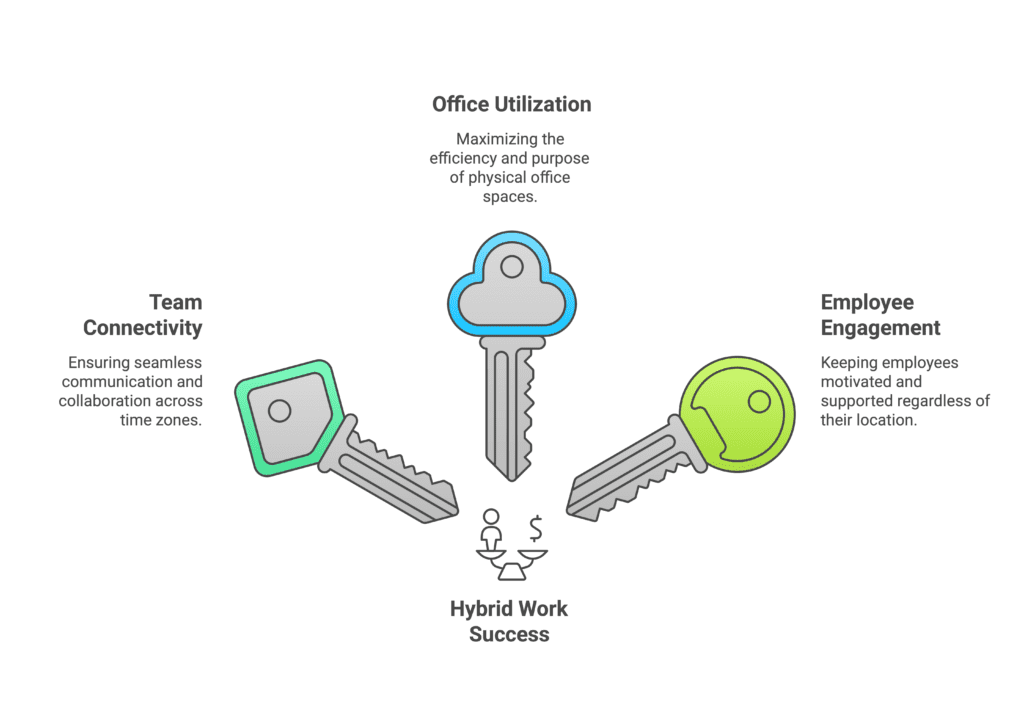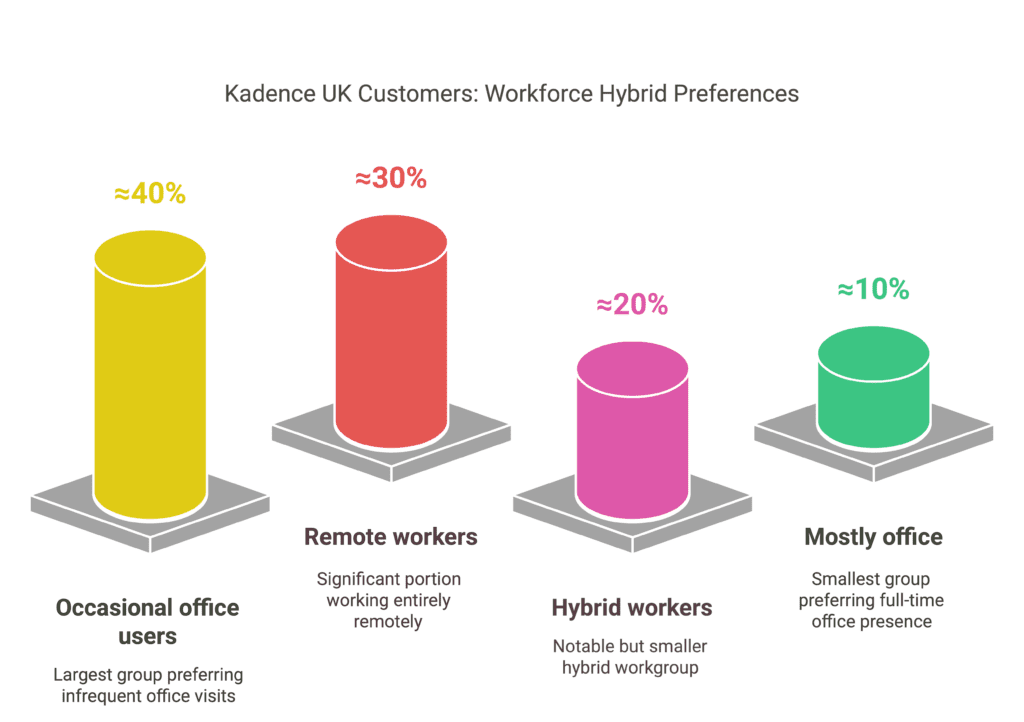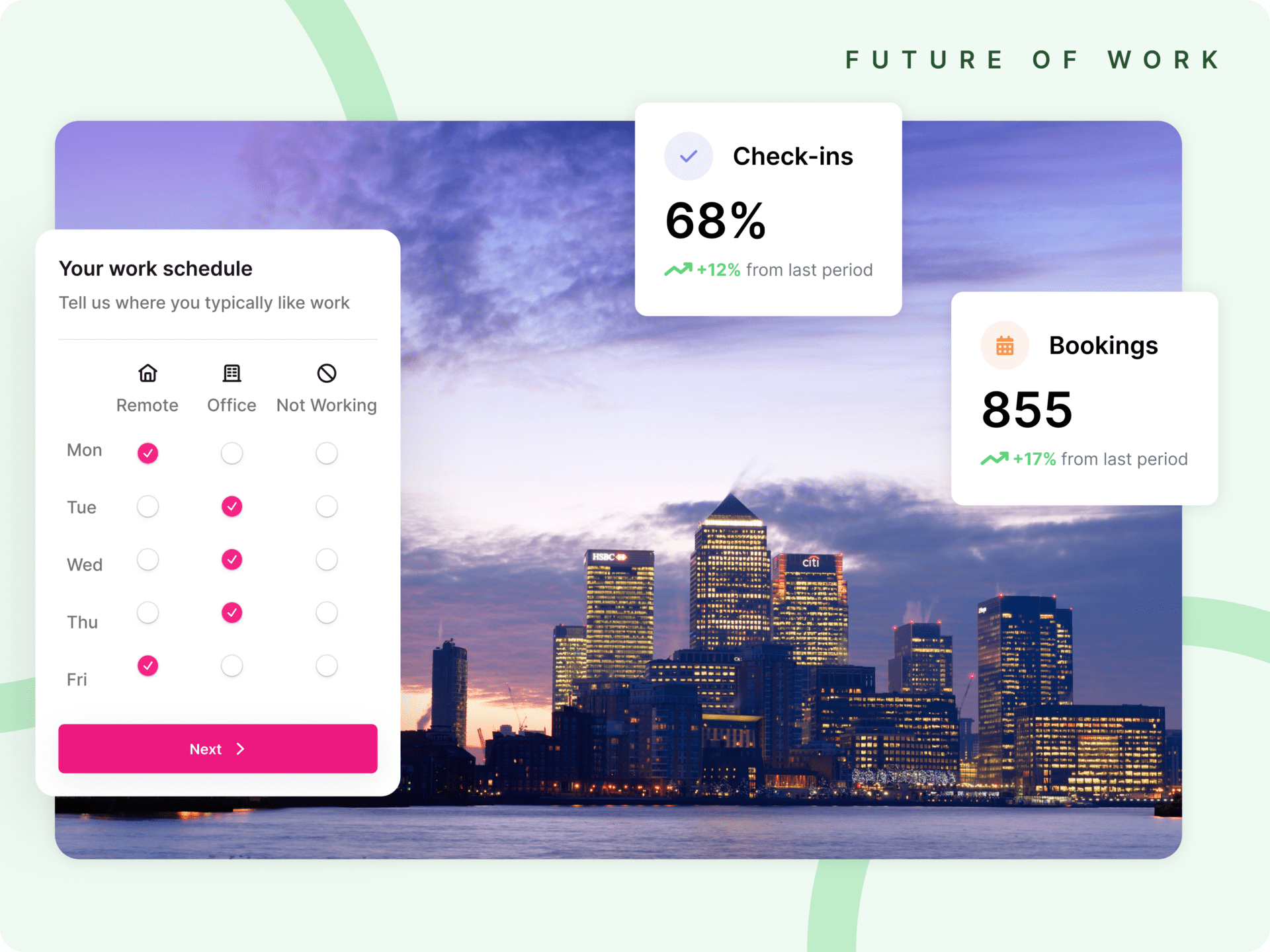Vodafone is tightening its grip on hybrid work, turning a nudge into a mandate. A recently leaked memo reveals that the telecoms giant is taking a hardline approach to hybrid work, warning employees that non-compliance could lead to disciplinary action, even impacting bonuses. This crackdown raises a critical question: Is rigid hybrid enforcement the right move for businesses looking to boost performance in 2025?
The Vodafone Memo: A Hardline Stance on Hybrid Work
According to The Register, Vodafone’s UK workforce received a stark reminder about their hybrid working policy in a message entitled “Hybrid Working at Vodafone”:
But the message didn’t stop there. Vodafone made it clear that failing to comply wouldn’t just be a policy violation—it could have serious consequences:
Strict mandates might force compliance, but they don’t build trust—or engagement. If leadership thinks office presence alone drives performance, they’re missing the point of hybrid work entirely.
The Problem with Vodafone’s Approach
Yet, this claim doesn’t fully align with what insiders have reported. Employees say Vodafone had previously encouraged office attendance—but now, it’s a strict mandate. This shift is even more striking given that Vodafone has been reducing office space in Newbury and Paddington, London while offshoring roles to Málaga, Romania, India, and other countries.

Here’s the irony: Vodafone is demanding office attendance at a time when its own workplace strategy contradicts its in-office push. Employees report that coming into the office often means sitting on video calls with colleagues in different locations—or even in the same office but at different desks due to a lack of meeting rooms.
Vodafone, however, insists that this is not a change in corporate policy:
But they did not respond on the threat to bonuses.
This raises an important question: If employees are still working remotely, even while physically present in the office, what’s the point of enforcing in-office attendance?
The real issue isn’t hybrid work—it’s that many companies, including Vodafone, are failing to make office time meaningful. Hybrid work isn’t just about presence; it’s about productivity, collaboration, and engagement.

The Business Risks of Enforcement-First Hybrid Policies
Vodafone’s approach highlights a growing divide between leadership and employee expectations. If the goal is to drive productivity, innovation, and engagement, penalizing employees for flexibility is the wrong strategy.
Here’s why enforcement-driven hybrid policies are risky:
- Employee Pushback & Attrition – Talented employees value flexibility. If they feel forced into the office, they’ll start looking for companies that respect their autonomy. A Gallup study found that Gallup research shows that nearly all employees in remote-capable jobs (93%) want to work remotely at least part of the time.
- Decreased Morale & Engagement – When hybrid work is treated as a compliance issue rather than a strategic advantage, morale takes a hit. Employees work best when they feel trusted, not micromanaged. Employees with flexible work arrangements report higher job satisfaction and productivity, with research linking flexibility to a potential 43% boost in revenue and a 20% improvement in performance over disengaged employees.
- Loss of Competitive Edge – Companies that embrace hybrid work as a strategic tool, rather than a mandate, attract top talent and retain institutional knowledge. A punitive approach to attendance could drive skilled professionals away. 72% of recruiters say companies without hybrid options are losing their competitive edge in hiring.

The Smarter Approach to Hybrid Work
Rather than issuing ultimatums, businesses should be asking: How do we make in-office time so valuable that employees want to come in?
- Design offices for collaboration: People don’t come to the office to sit on Zoom calls—they come for meaningful interactions. Make those interactions worthwhile.
- Focus on outcomes, not hours: If employees are meeting their goals, why does it matter whether they’re in the office eight days a month?
- Lead with flexibility: Hybrid work isn’t about counting days—it’s about balancing individual needs with company goals.
The Future of Hybrid Work: Adapt or Struggle
Companies that treat hybrid work as an evolution—not a policy to enforce—will attract and retain the best talent. Those that impose rigid attendance rules risk losing their workforce to more flexible competitors.
Vodafone’s ultimatum is a case study in how not to handle hybrid work. The real winners in 2025 will be companies that focus on creating a workplace people want to be in, not one they have to be in.
If you’re looking to build a hybrid work strategy that actually works—without the rigid mandates—Kadence can help. Book a demo today to see how we make hybrid work seamless, efficient, and employee-friendly.





